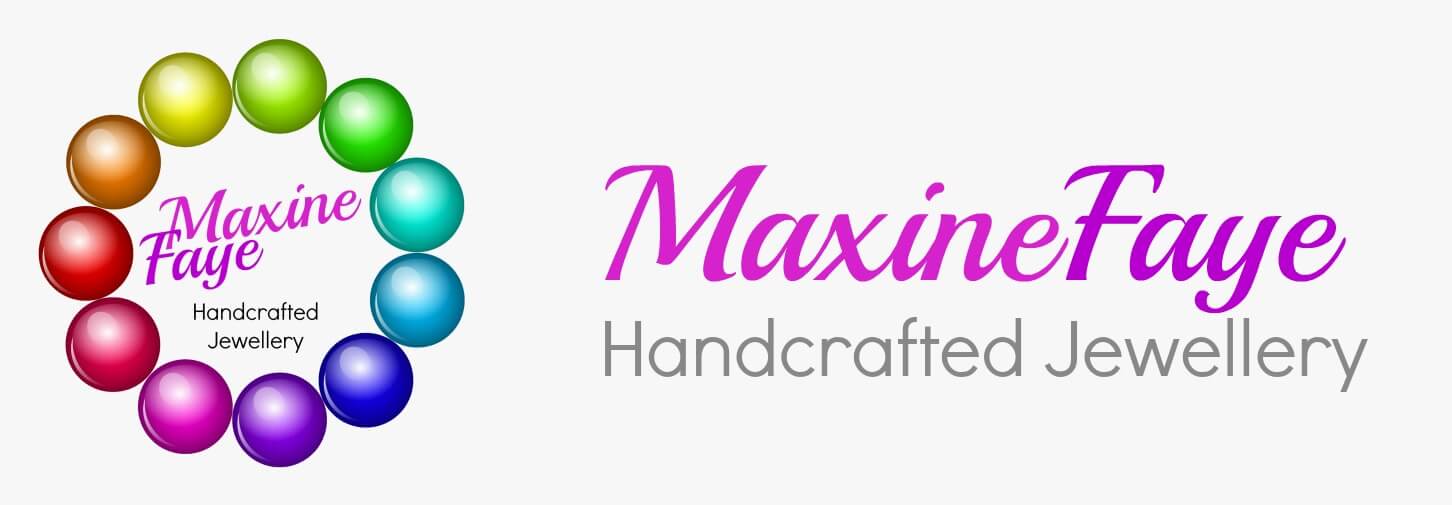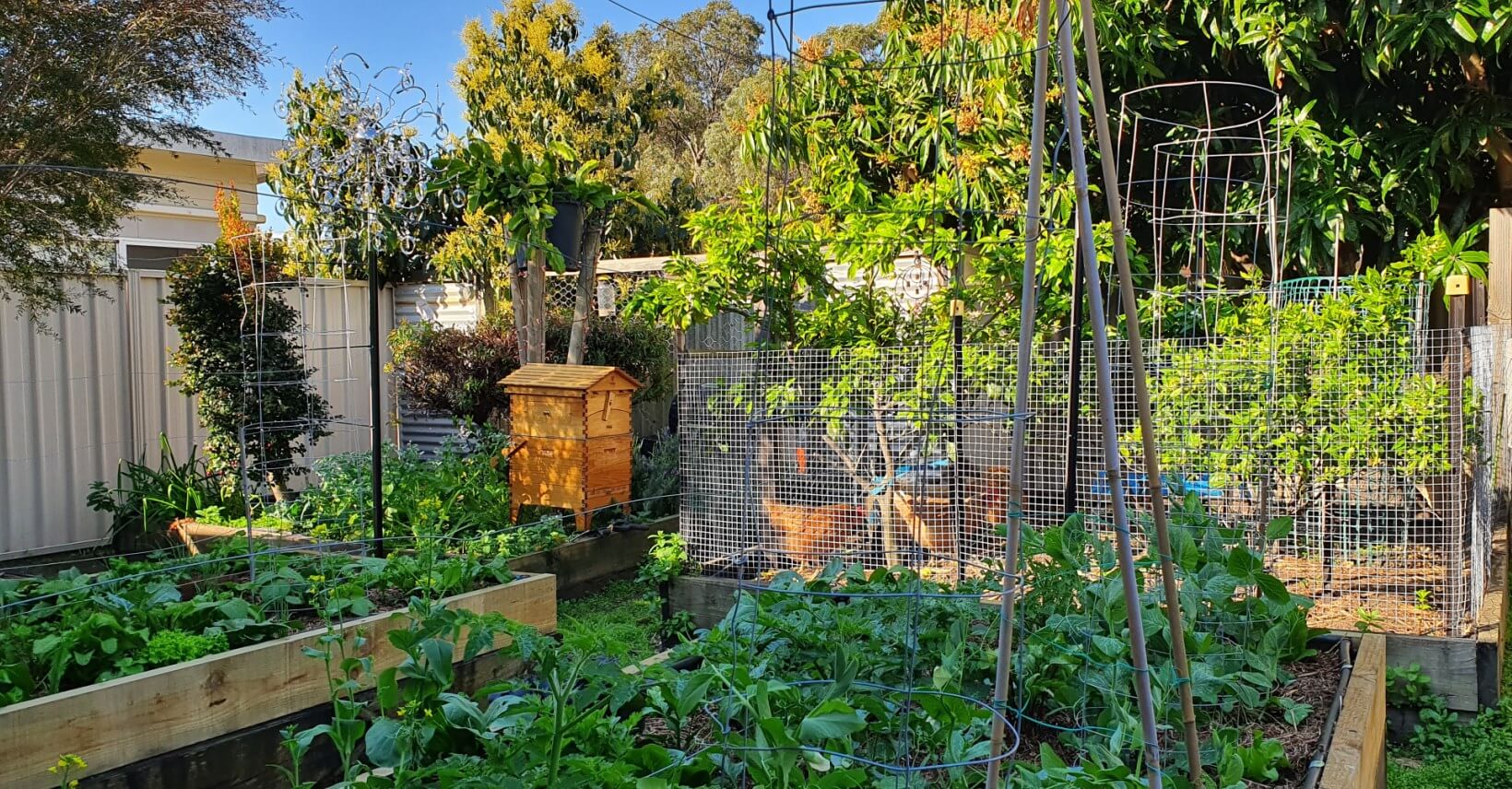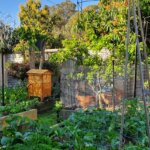Sustainability & the Environment
Reduce Waste, Conserve Energy: Embrace Circular Economy
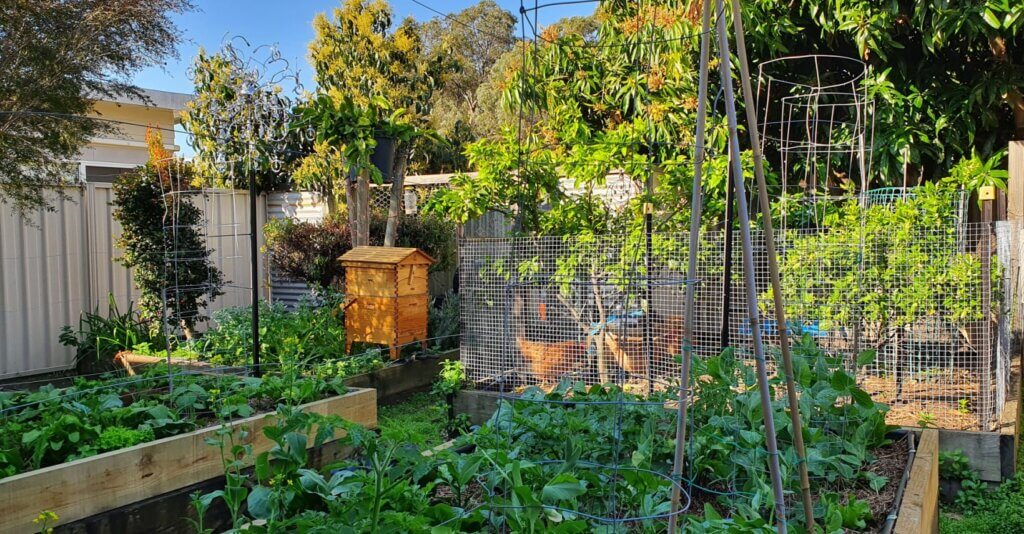
A positive boost to sustainability and the environment! March, 2024 saw the second phase of WA’s Plan for Plastics coming into effect on Friday 1st, with a ban on single-use, non-compostable coffee cups and unlidded food trays. More plastic items are scheduled in the Plan from September 1st 2024 and consumers are encouraged to take their own take-away cups, water bottles, food containers and cutlery.
Protect the Environment: Promote Sustainability
When you purchase and item from MaxineFaye Handcrafted Beaded Jewellery, much of the packaging may consist of reused wrapping paper, recycled boxes, or padded mailing bags, both to keep down the costs and to reduce waste. It may not make for an Instagram worthy unboxing experience, but stops waste at the source and helps improve sustainability and the environment through Circular Economy
New packaging materials used at MaxineFaye handcrafted Jewellery are eco-friendly, sustainable, home compostable, plant-based, recyclable, and plastic free.
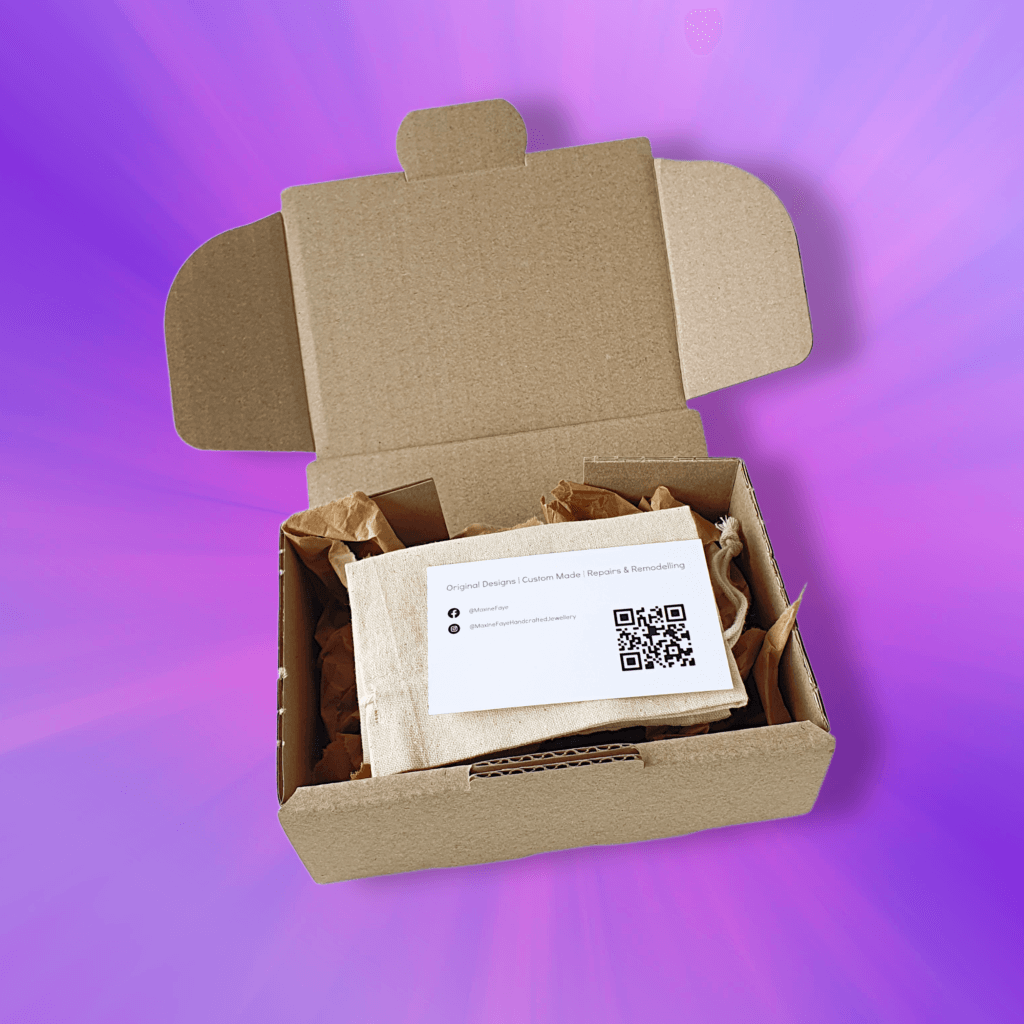
Put your R’s on the Line: There is no Plan(et) B
- REDUCE consumption of materials
- REFUSE – do I really need it, can I borrow it
- RE-GIFT – donate to a charity, join a community gifting group
- REUSE – use a keep-cup, take your own shopping bag, water bottle, cutlery
- REPAIR – can it be repaired, join a local Repair Café
- REPURPOSE – can it be remodelled, what do I have that can be used instead?
- RECYCLE/UPCYCLE– visit your local Council for where/when/how to recycle specific items
- batteries, paints, chemicals, white-goods, computer, and printers
- ROT – food scraps and suitable garden waste
- Add to the compost bin, or worm farm/worm tower
- start a no-dig lasagne or hügelkultur garden bed,
- feed it to the chickens
Chooks are a lot of fun and a great way to recycle food scraps
The back garden follows a general permaculture / no dig practice. Vegetables and herbs which benefit from shade sit under fruit trees and shrubs, while the heat loving plants find their spots on the edges of the gardens. The garden environment isn’t always tidy (who am I kidding – it is seldom tidy) but the birds, bees, bugs and butterflies seem to enjoy it.
The chooks haven’t read the “no dig” agreement though! They dispose of kitchen waste and reward us with eggs, so are forgiven. When they eventually stop laying, they enjoy their retirement foraging around the back yard, until it’s time for them to go to the great chicken run in the sky. Then they are buried and become compost for the next generation of garden plants.
I could never eat them…in fact years ago I bought a frozen free-range chicken to cook for dinner but the thought of it made me so sad that I buried it out the back (uncooked) and dinner wasn’t what the family had expected.
Recycling other organic materials support the Environment
The chooks share their run with a couple of compost tumblers, a worm tower and a worm farm. Anything the chooks don’t eat can be added to one of these. The reward for a little effort is less waste sent to landfill, and rich compost to add to the garden beds and improve the environment.
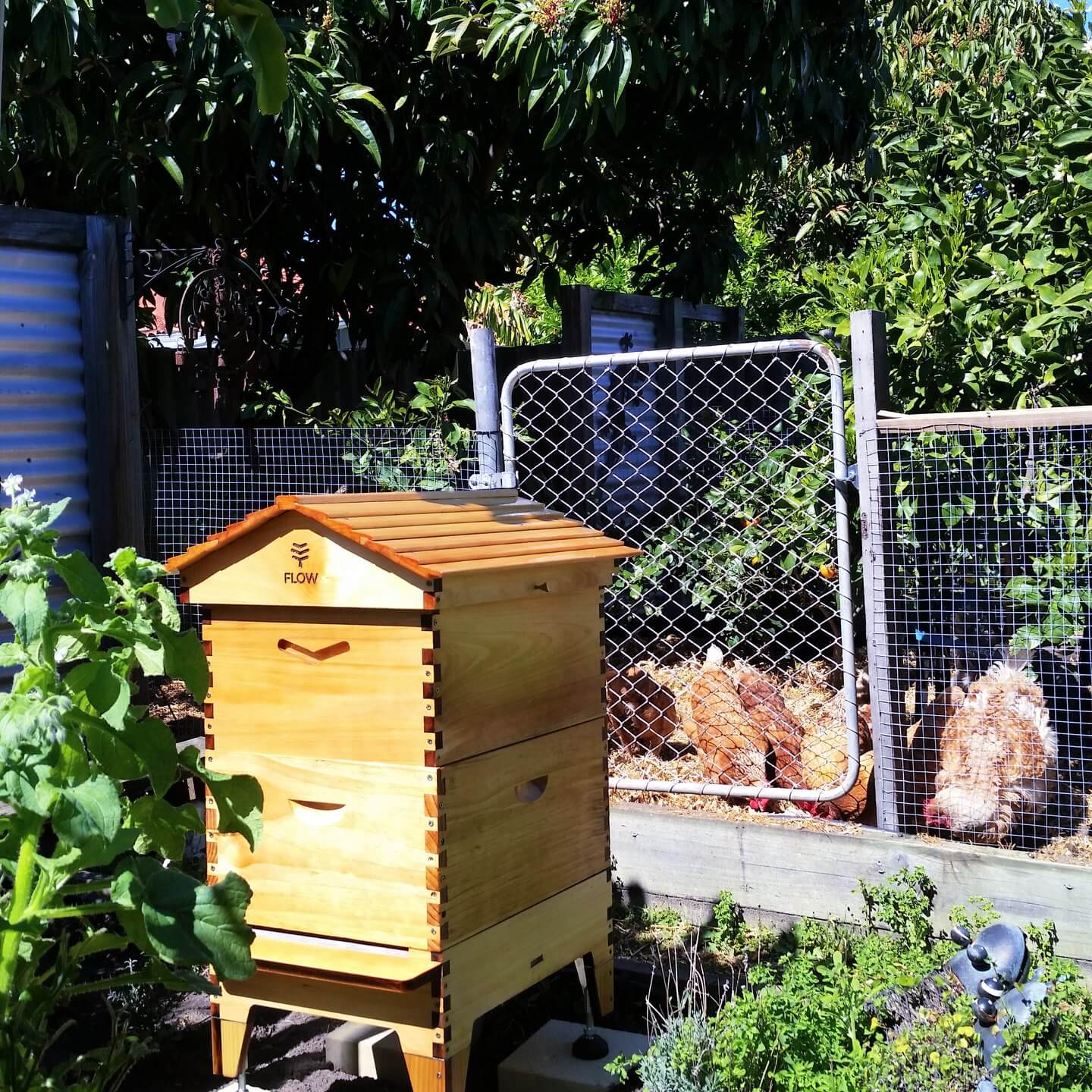
Bee Hive and Insect Hotels
Hubby had a Flow® Hive and it was amazing to watch the different coloured honey being harvested from adjoining cells. This depended on what plants were in bloom when the bees were out collecting pollen. Unfortunately, after he had a severe allergic reaction to a sting, and even with the EpiPen® I wasn’t comfortable having him work in their environment. The hive has now been added to our daughter’s Apiary.
He has two insect hotels in the front yard for the local bugs and native bees. These aren’t for honey, but to encourage the predatory insects to stay in the garden, protect it from pests and pollinate the plants.
What are your hints and tips on sustainability and way to reduce consumption of materials.
